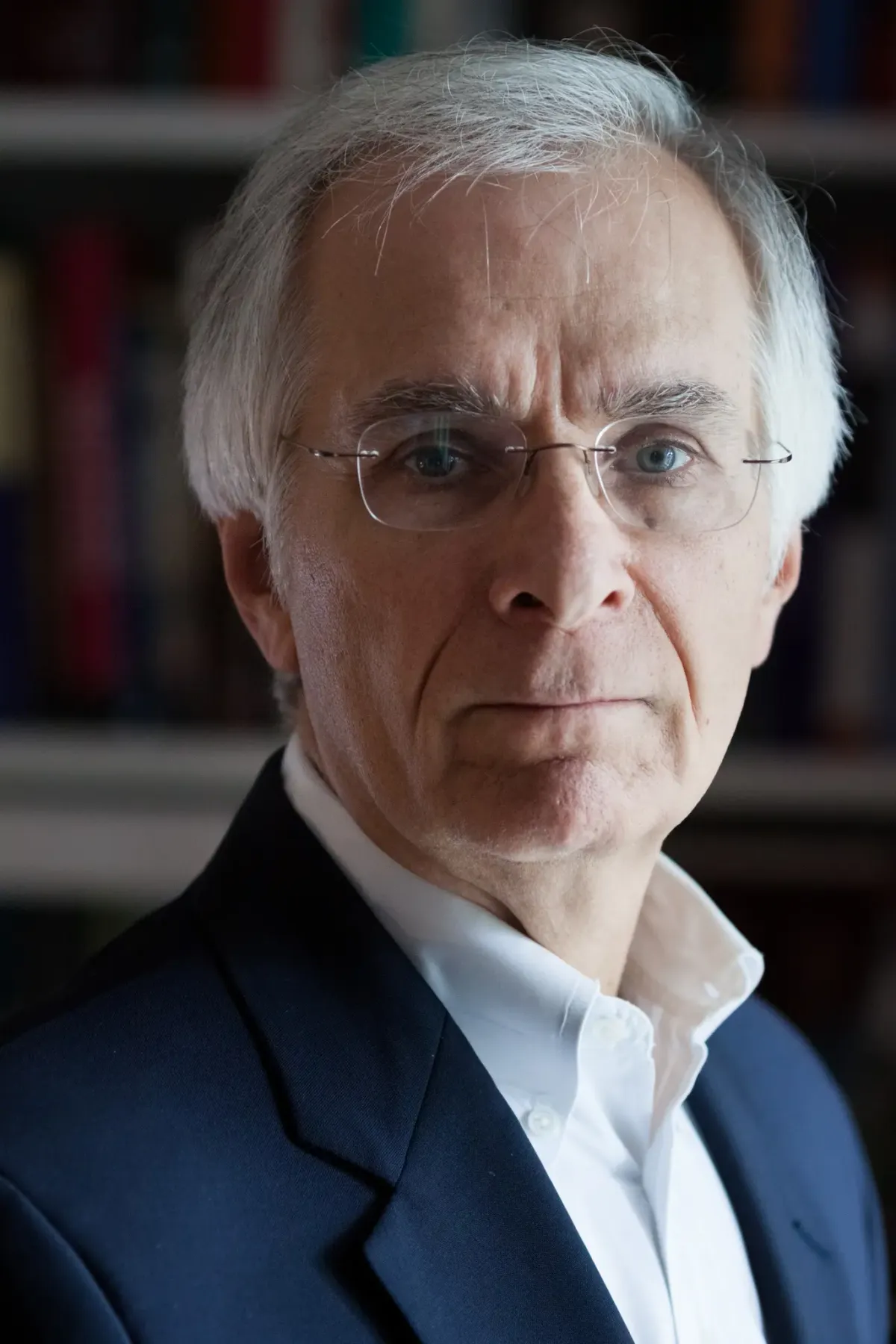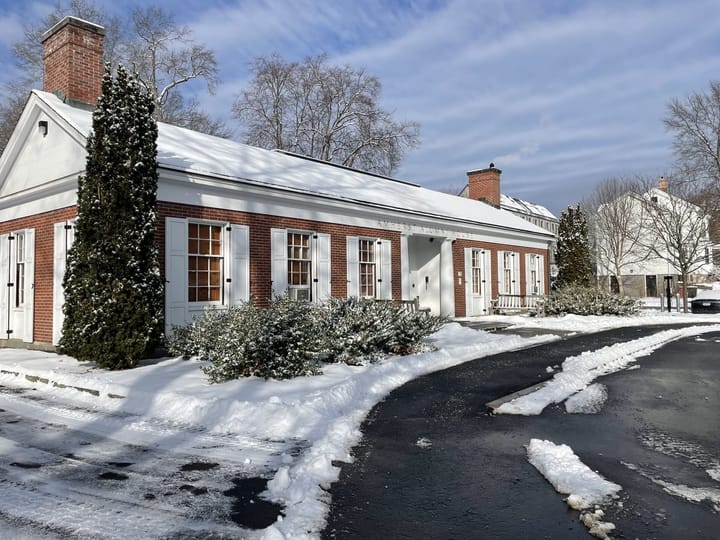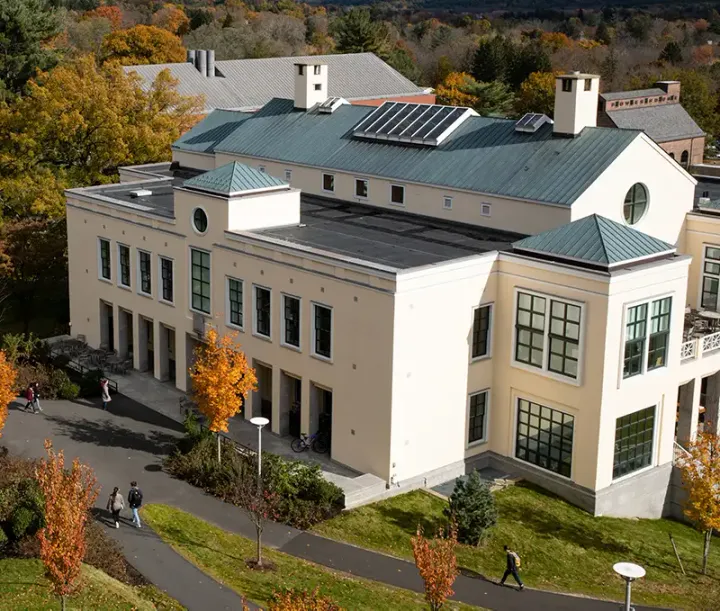Panel Discusses Student Activism in the Midst of Trump Presidency
In the second iteration of the series “What Democracy’s Demise Would Mean for You,” professors from across the college addressed the effects of President Donald Trump’s actions on American democracy while calling on students to take on pro-democracy activism.

On Wednesday, five professors gathered in the Cole Assembly Room for the second panel discussion in a series called “What Democracy’s Demise Would Mean for You.” The event occurred the day after President Donald Trump’s address to a joint session of Congress and addressed Trump’s speech, a number of his recent actions that affect the state of democracy in our country, and how students can use their resources and voices to defend their constitutional rights.
The speakers, professors from various disciplines, focused on what resistance, unity, and activism can and should look like in a political climate that threatens civil liberties such as freedom of speech and assembly. The panelists included: William Nelson Cromwell Professor of Jurisprudence and Political Science Austin Sarat; Professor of Economics and Environmental Studies Katharine Sims; Assistant Professor of Biochemistry, Biology, and Biophysics Marc Edwards; Michael Kunichika, professor of Russian Literature and director of the Center for Humanistic Inquiry; and Charles Hamilton Houston ’15 Professor of Black Studies and History Stefan Bradley.
Each panelist shared their concerns surrounding the current state of American democracy, providing a sense of relatability and unity during uncertain times. They went on to share that they felt communal coalition and individual action were the most crucial ways to mobilize a movement. There was an overarching sentiment of hope and urgency in the speakers’ advice.
Bradley began by stating that “the democracy that you all read about, and that some of us have lived through, is gone.” But, he reiterated that there is hope, which lies in the hands of young people. Bradley taught in St. Louis, Missouri during the 2014 Ferguson protests over the police killing of Mike Brown, and he recounted how his students took to the streets to protest constitutional violations and police brutality and, in doing so, “rescue[d] democracy.” While Bradley claimed that democracy, as it was once known, is “gone,” he reaffirmed: “I have total faith that you could build something new, perhaps something better.”
Edwards discussed how his work has allowed him to engage in the notion of “public good and science as a public good.” While he issued an apology for stepping away from a fight for academic freedom and the commodification of science in his teaching career, Edwards reaffirmed his commitment to reinvigorating the idea of science as a public good and preparing students for this work. “That is [what] has to begin again at places like this, or we’re really lost,” he said.
Kunichika expressed his confusion and alarm about how our safety and privilege as scholars are being threatened by asking a litany of questions. Speaking on Trump’s decisions to stop funding the National Institutes of Health and the subsequent struggle of medical schools to manage enrollment due to amounts, he asked how we are making sense of this time and what we can reference for clarity, “What’s happening … can feel like climate change: a disaster that is destructive but distant,” he shared. But, he reminded the audience that they have already lived through daunting times. Urging students to be critical and engaged, cultivating their faculty and resources, he encouraged the audience to understand the virtues of being unified. He referenced the work of historians and activists, reminding the audience of “the most basic of our civil liberties,” like the right to criticize the government, equality before the law, and restraints on the exercise of police powers, which are “the inheritance of a long history of struggles by abolitionists.”
Sims, as an environmental economist, shared the importance of federal funding for climate and environmental justice. She stated that tax dollars and public resources belong to the people and should be used on behalf of the people. Explaining that federal revenues come primarily from income and payroll taxes, she proclaimed that “the Trump administration is making stark and profound changes in what they are doing with your tax dollars, your public lands, and your public resources.” Sims shared that the Biden administration, through the Infrastructure Investment and Jobs Act and the Inflation Reduction Act, made strides to subsidize clean energy sources in economically progressive ways. “The Trump administration has sought to terminate and roll back every step of progress” they have made, thus serious collective action is necessary, which became a call for students to speak out, organize protests, and contact their representatives to voice their concerns and values.
Finally, Sarat emphasized the importance of urgency and citizenship in defending democracy. He references an article written in the wake of Trump’s first election by activist and scholar Masha Gessen, “Autocracy: Rules for Survival.” Sarat shared the following five pieces of advice: Take what they say seriously; do not be taken in by any small signs of normalcy; institutions will not save you; be outraged and maintain a capacity for shock in the face of the impulse to normalize; and do not make compromises. He urged Amherst students to take action, ranging from smaller measures such as calling congresspeople and friends to discuss the state of affairs, to advocating for greater demands like calling on students to “demand that the Amherst Student publish an entire issue on threats to democracy,” and “demand Amherst College suspends classes for one day to have a day of dialogue.”
As with the previous event, two of the presidents of Amherst Students for Democracy (ASFD), Isabella DePreist-Sullivan ’27 and Hedley Lawrence-Apfelbaum ’26, asked students to sign their pledge, which asks that students vote in every election they can and work for an organization that fights for democracy either domestically or internationally, during their time at Amherst.
The students also shared that they had their first meeting with Dean of Students Angie Tissi-Gassoway to begin planning for “Democracy Day” to be held on Sep. 17, next semester, where classes will be suspended to hold discussions on democracy through faculty panels and speaking workshops.
Sarah Alexander ’28 thought that the panel was productive, but believed it should have been advertised more. “What was said would have been more productive had there been more people,” she said.
Carina Nanan ’25, a Black studies major, did not attend the first discussion but was glad to have attended this one, finding the interdisciplinary perspectives useful. “I appreciated hearing professors from different disciplines talk about [democracy] because I only hear it from a Black studies perspective … Hearing that we need to rewrite the constitution, you don’t really hear that conversation outside of a distinct type of space,” she said.
Hearing this conversation articulated by different disciplines, both students agreed, was very powerful.





Comments ()